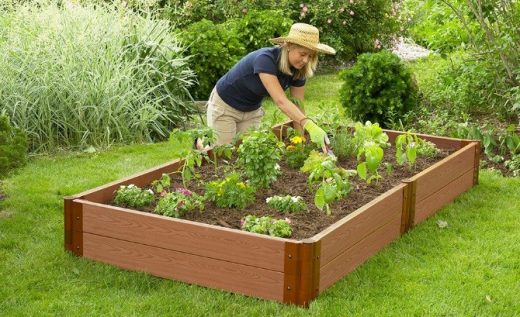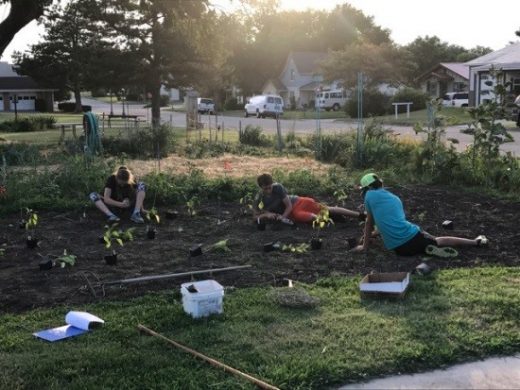 If you have vegetables that are blooming but not setting fruit, you may have a problem with flower pollination. There are several possible reasons for this that usually vary by species. One condition that can affect several species at the same time is overfertilization. Too much nitrogen causes the plant to emphasize vegetative growth, often to the detriment of fruit production. Overfertilization can lead to a delay in flower production and a decrease in fruit set among the flowers produced.
If you have vegetables that are blooming but not setting fruit, you may have a problem with flower pollination. There are several possible reasons for this that usually vary by species. One condition that can affect several species at the same time is overfertilization. Too much nitrogen causes the plant to emphasize vegetative growth, often to the detriment of fruit production. Overfertilization can lead to a delay in flower production and a decrease in fruit set among the flowers produced.
Squash, cucumbers, watermelon, and muskmelon can have a couple of other problems. First, the early flowers on these plants are usually all male. The production of both male and female flowers becomes more balanced as time passes. You can easily tell the difference between the two because only the female flower has a tiny fruit behind the blossom. If you have both, have not over-fertilized, and still have a problem, make sure you have pollinators. Look for the presence of bees visiting the plants. If you don’t see any, try hand-pollinating several flowers.
Use a painter’s brush to transfer pollen from the anther of the male flower to the stigma of the female flower. If you get fruit on only those flowers you pollinated, you need more pollinators. Make sure you aren’t killing them with overuse of insecticides.
Tomatoes are wind pollinated and therefore not dependent on pollinators. But they have another possible problem, which is temperature. Tomatoes normally won’t set if the night temperature is below 50 due to sparse pollen production. They also won’t set when nighttime temperatures are above 75 degrees F and daytime temperatures are above 95 degrees F with dry, hot winds.
By: Cassie Homan
 Squash bugs are the grey, shield-shaped bugs that feed on squash and pumpkin plants. If you have had problems with these insects in the past, you know that they are almost impossible to control when mature. This is because the squash bugs have a hard body that an insecticide has difficulty penetrating. Thus, spraying when the insects are small is important. We are now seeing the nymphs of the first generation. These nymphs will eventually become adults, which will lay eggs that will become the second generation. The second generation is often huge and devastating. Therefore, it is important to control as many squash bugs now as possible.
Squash bugs are the grey, shield-shaped bugs that feed on squash and pumpkin plants. If you have had problems with these insects in the past, you know that they are almost impossible to control when mature. This is because the squash bugs have a hard body that an insecticide has difficulty penetrating. Thus, spraying when the insects are small is important. We are now seeing the nymphs of the first generation. These nymphs will eventually become adults, which will lay eggs that will become the second generation. The second generation is often huge and devastating. Therefore, it is important to control as many squash bugs now as possible.
 Sidedressing, also referred to as topdressing, is the practice of fertilizing your plants as they are actively growing. This is done using a fertilizer high in nitrogen and gives your plants an extra boost during the growing season. Done correctly, sidedressing can improve vegetable, fruit and flower production.
Sidedressing, also referred to as topdressing, is the practice of fertilizing your plants as they are actively growing. This is done using a fertilizer high in nitrogen and gives your plants an extra boost during the growing season. Done correctly, sidedressing can improve vegetable, fruit and flower production. If you love cooking and gardening, then we have the perfect class for you. Healthy food choices don’t have to be boring and bland. Come learn how to cook with less salt but more flavor. We will demonstrate how to add herbs to your favorite recipes and grow them in your garden.
If you love cooking and gardening, then we have the perfect class for you. Healthy food choices don’t have to be boring and bland. Come learn how to cook with less salt but more flavor. We will demonstrate how to add herbs to your favorite recipes and grow them in your garden. 2017 marked the second summer that the Master Gardeners conducted a Sweet Pepper Trial in the Post Rock District. A total of 69 pounds of peppers were harvested and donated to senior centers, family, and friends. The varieties that had the largest yields by weight were the Sweet Banana, Summer Sweet, and Declaration. This was the second summer in a row for the Sweet Banana and Declaration to be top producers for the Master Gardeners. The peppers with the smallest yields were Alliance and Camelot.
2017 marked the second summer that the Master Gardeners conducted a Sweet Pepper Trial in the Post Rock District. A total of 69 pounds of peppers were harvested and donated to senior centers, family, and friends. The varieties that had the largest yields by weight were the Sweet Banana, Summer Sweet, and Declaration. This was the second summer in a row for the Sweet Banana and Declaration to be top producers for the Master Gardeners. The peppers with the smallest yields were Alliance and Camelot.